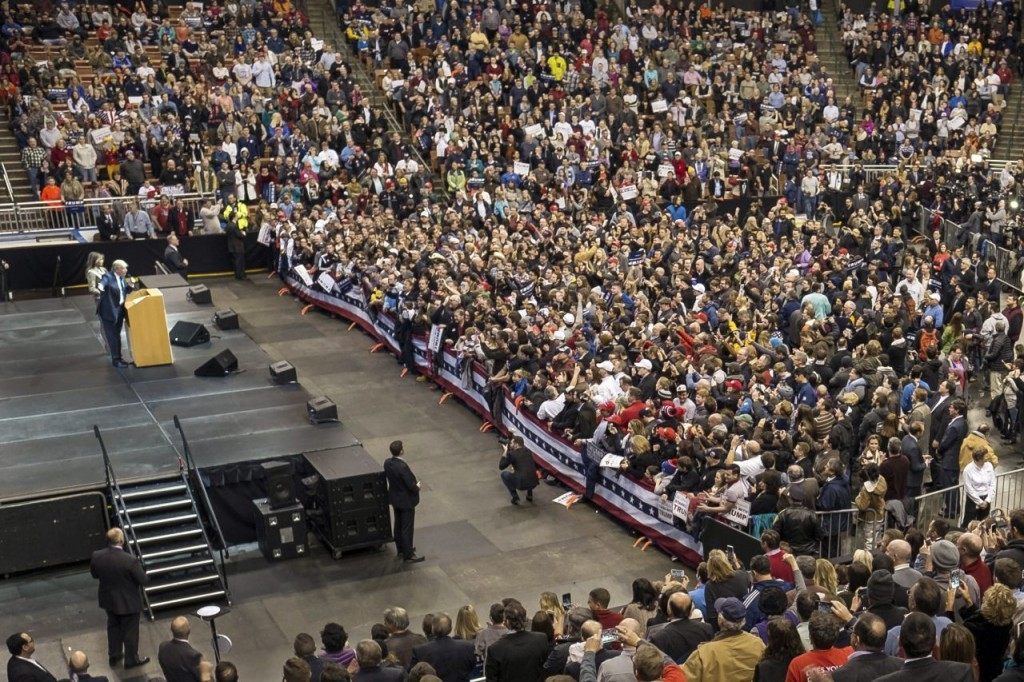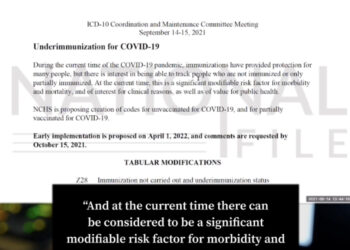Last Updated on September 21, 2020
The mind poison of modern education and the media can shape people’s perceptions at a young age. The health of our society going forward depends on American patriots with an understanding of real history to provide citizenship lessons to young people who have fallen victim to the intellectual subversion of modernity. On Facebook, a wonderful patriot told a very happy story about what happened after neighborhood boys stole the Trump sign from her front yard.
American Citizen Linda Rowe writes: “Well it happened! Our Trump sign was stolen by two 15 year olds this evening, but our neighbor saw the whole thing and was able to catch one of them. Our neighbor made the kid come up to the door, tell me what they had done, then made him leave his phone with me while he went and got his friend and our Trump sign. Once a Marine, always a Marine and that kid got just a small taste. The boys came back with our sign, which they had not destroyed. We asked the boys why they took our sign and one of the boys said they had been told that all Trump supporters were racist; the boys are Hispanic. There was a lot of conversation after that statement. They got a history lesson and what it means to be an American and have different political views; they seemed surprised. We all hope they learned from this experience. They understood we could have called the police and pressed charges on them. It’s sad that these two boy’s minds have already being poisoned. Lynn and I are so blessed with wonderful neighbors.❤️🇺🇸❤️”
As we get closer to Election Day, it’s important to remind people what the President Donald Trump MAGA movement is really all about. HERE IS WHAT WRITER PATRICK HOWLEY, ON THE EVE OF THE 2016 NEW HAMPSHIRE PRIMARY, WROTE FOR BREITBART NEWS:
“MANCHESTER, N.H. – Donald Trump took the stage to a massive ovation at the Verizon Wireless Arena, the crowd near capacity in the 14,000-seat venue despite a blistering snowstorm the night before the all-important New Hampshire primary.
The frontrunner railed against lobbyists and donors and the system that rewards them, pledged to close the border and repair the military, laid out his most comprehensive plan for a new American health care system, and made the crowd believe that perhaps — here in “crunch time” — this whole episode might soon just end with a White House win.
Before Trump entered to the Beatles’ “Revolution,” the show was already underway. In the hallway, concession stands doled out hot dogs and pretzels. On the floor, people danced and a costumed Trump impersonator posed for the cameras. An announcer on the PA system, his voice of Old New York, told the fans not to intimidate any protesters. The First Amendment, in this venue, would be upheld. An ironic entrance video showed Fox News pundits bashing Trump as that most dreaded of creatures: a “populist.”
“You know there’s like seven accidents outside. I cannot believe it. It cannot be like this tomorrow but I think it’s going to be fine. It stops tonight at two o’clock we think. So nobody’s going to have any excuses,” Trump declared to applause. “We have a blizzard or at least a very bad storm, and to have this many people, I want to thank everybody…This is a lot of people.”
“This is a movement,” he said. “What we’re doing hasn’t been done before.”
His Republican opponents, and the special interests funding them, garnered joyous boos.
“Everybody on the [debate] stage with me and on the other side, they’re taken care of by special interests. Their lobbyists, their special interests. They’re getting tremendous amounts of money…And they don’t like me…I’m working for these people out here.”
Marco Rubio, stalking-horse in the stable of hedge fund billionaire Paul Singer, received special attention.
“I’m standing at the debate. I’m watching Marco sweating like a dog on my right…Honestly, Marco is having a hard time. And he’s a nice guy. He’s a nice guy,” Trump said before tearing into Rubio’s pre-scripted talking points. “After three times, I said, ‘Wait a minute, he said that about three minutes ago. Then I said, ‘Wait, wait, wait, he said that two minutes ago.’ The same exact thing! So after the fifth time I said, ‘What the hell’s going on over here?’”
Trump has turned the Republican primary into a reality show. It’s an effective tactic, one that resonates with a country weaned on the TV genre that he helped to create. The sweating, bumbling politicians have all become boardroom wannabes or castaways on an island where their flaws are exposed, picked apart, and analyzed. And they all come off dishonest compared to him. This is the politics of Richard Pryor as Montgomery Brewster and Peter Sellers as Chance the Gardener. This was never supposed to happen. But it did.
And scarier still for the suits trying so hard to shut it down: Trump has substance.
On the border: Build the wall to block the gangsters and their heroin shipments. “We have situations right now where we have the migration. And we’re accepting people in. And we’re accepting them in by the thousands…Look at New Hampshire, the problems you have with the drugs. We are letting people into this country and we have absolutely no idea who they are, where they come from, are they ISIS? Maybe, maybe not.”
On health care: Trump wants to repeal Obamacare and replace it with a private system with more options and no state-specific boundaries, lower deductibles, take on the drug companies and install competitive bidding for medicine, and save enough money to take care of the poor. And he brushed off those who say it’s not the Republican Way. “There’s a small group of people on the bottom who are not going to be able to be taken care of [under Obamacare]. And I say, as Republicans, is there anybody who doesn’t want to take care of them? We are not going to have people dying on the streets. We’re going to get them into a hospital to take care of them…Let me tell you, the Republican way is, People CAN take care of themselves. We have to help them. We’re not going to let them die.”
On the military: He wants to strengthen the armed forces but cut waste out of the budget and re-focus it. “We’re buying equipment and we’re buying things that our generals don’t even want. We’re buying planes they don’t want instead of other ones because that company has better lobbyists…We’re going to get them the equipment they want. We’re going to save a lot of money.” He wants to build a military so strong we’ll never have to use it. After we take care of ISIS, that is. And no more nation-building experiments that de-stabilize the Middle East and embolden Iran. “Nobody, I’m telling you, nobody, is going to want to play with us.”
This is the politics of putting America First. It echoes the politics of Ross Perot’s Reform Party, which once almost became Trump’s party and which once housed Trump friend and paleoconservative firebrand Pat Buchanan.
When Trump explains his views, it all sounds self-evident. It sounds like common sense. It wouldn’t sound so controversial if we didn’t live in a media climate controlled by globalist corporate interests. It’s the kind of politics — tough, protectionist, and nationally self-interested — that Trump has been thinking about for a very long time.
And now, like the last American tycoon, he’s the only one fighting for it.
After the speech, Trump and his family descended upon an upscale steakhouse, the finest in Manchester. He strolled in like the benevolent billionaire and left the same way. He talked strategy with this reporter and my dear friends at an all-reporter’s table. He introduced his sons and his wife and daughter. He was polite to a tee, a consummate gentleman, a class act. And even though I’d never seen Donald Trump eating well-done steak a shovel pass away from me, his presence didn’t interrupt the night. We — my dear beloved friends and I — became even louder, more joyful, more drunk, more happy to be with each other and alive in this weird and electric American moment. Trump simply decorated the room.
“What a crowd tonight,” he said, almost astounded at his good fortune. “What a crowd.”
It’s hard to compare him to any other politician or historical figure, though Franklin Roosevelt comes to mind. But he’s instantly familiar. His name, his demeanor, his crazy brilliant quest to do the right thing and add a touch of Broadway magic to all of it just for the sake of style. He’s a man from a New York novel. He exists in the collective unconscious.
And so maybe, when he talks about himself in the third person, as he tends to do (“We won’t lose with Trump”), he’s not referring just to himself. Maybe he’s not just talking about his own 69-year old six-foot-two frame.
Maybe he’s talking about a movement.”






















